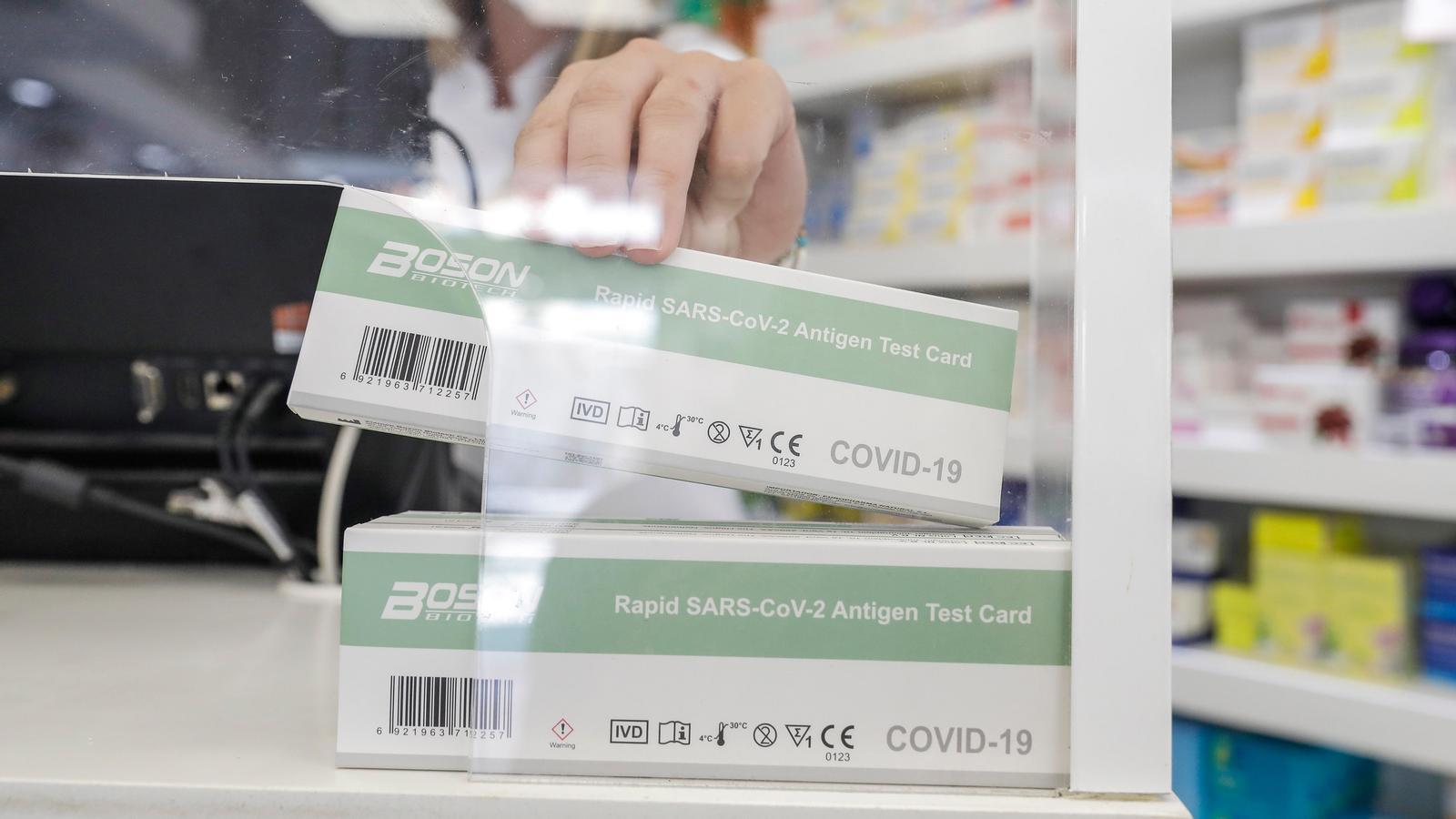The increase in COVID-19 cases is driving up sales of self-tests.
At Son Espases Hospital, around 30 cases are detected per week, three times as many as at the beginning of July.

PalmDemand for COVID-19 diagnostic tests in pharmacies in the Balearic Islands has doubled so far this year, following the shift in the highest incidence rates of the respiratory virus to the summer. Rosa Llull, the Pharmacy Office representative of the Official College of Pharmacists of the Balearic Islands, confirmed this in statements to Europa Press. She explained that although the data refers to figures provided by the Cooperative of Pharmacists, the main distributor in the Archipelago to pharmacies, the reality is in the "established" ones.
"I cannot guarantee sales in all pharmacies, but the reliable data we have is that twice as many diagnostic tests are being distributed than at the beginning of the year. We perceive that there are more patients with compatible symptoms, although we cannot then know if it is really COVID or something else," Llull explained. At Son Espases Hospital, approximately 30 cases are being detected each week, three times as many as at the beginning of July, considering that all admitted patients, regardless of their respiratory illness, are tested. Since July, the positivity rate has increased from 5% to 15%.
Regarding the patient profile, pharmacies in the Archipelago are currently receiving attention, on the one hand, from people who present symptoms compatible with COVID and are specifically seeking to rule out this possibility, but also from patients who only seek treatment to relieve symptoms without pausing to assess what process they are going through. "Some people have normalized it, while others are more concerned because they have an elderly relative nearby," he added.
The increase in demand for diagnostic tests is related to the shift in the highest incidence of COVID-19 to the summer months. In this regard, the head of Microbiology at Son Espases Hospital, Antonio Oliver, has indicated that it is mainly due to two reasons. On the one hand, the "competition" with respiratory viruses typical of winter, and on the other, the dependence of the coronavirus on socializing, which is more common in summer. "COVID has to compete with the flu, and they can spread relative to each other. We've also seen that the coronavirus is highly dependent on socializing, and in the summer, we clearly maintain more social contact. If, in addition to being sufficiently resistant to heat, you add the fact that there's no flu and there's a lot of social contact, it causes a spike."
Heat Resistant
Oliver also points to the evolution of the virus itself, the emergence of variants and subvariants, and the ability to "escape" the immune response that the human body has developed thanks to vaccines or past episodes of the disease. This phenomenon of the virus's resistance to high temperatures has been observed over the past two years, and it is expected that, as the weeks go by, a trend seen since June will be reversed. "It's not very high, but it is higher than what we had at the beginning of the summer and what we've been seeing over the last two years: that we have the highest COVID positivity rates in the summer, not in the winter," he admitted.
The absolute numbers, the head of Microbiology at Son Espases Hospital insisted, are low and "shouldn't be an obsession." For now, these are the most reliable data, because the sentinel network is operating at half speed. According to data from the Directorate General of Public Health consulted by Europa Press, in week 30 of the year the COVID rate was 9 per 100,000 inhabitants and 13.6 in people over 60 years of age. The previous week, these rates were 8.8 and 12.6, respectively. Although, at present, it is not easy to distinguish COVID from other respiratory viruses due to the similarity of symptoms, Dr. Oliver urges people to pay attention to symptoms such as a sore throat, general malaise, mild fever, or runny nose.
